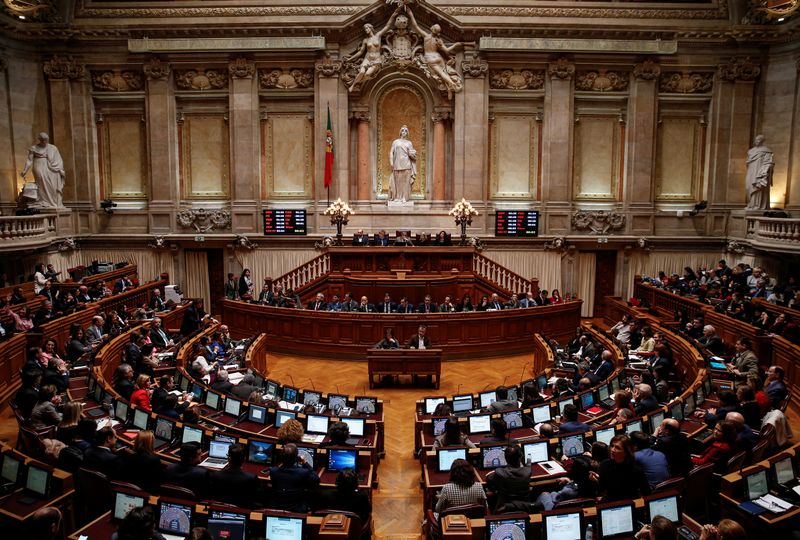
A view of Portuguese parliament during a debate on 2020 state budget at the parliament in Lisbon, Portugal February 6, 2020. REUTERS/Rafael Marchante
February 6, 2020
By Andrei Khalip
LISBON (Reuters) – Portugal’s parliament passed the minority Socialist government’s 2020 budget bill on Thursday after rejecting a tax cut proposed by the opposition that threatened the plan’s aim to post the first fiscal surplus in 45 years of Portuguese democracy.
The government had warned such a tax cut would have been “irresponsible”, costing 0.2%-0.4% of gross domestic product and undermining its planned surplus of 0.2% this year.
In its final reading, the budget bill was approved by 108-86 votes with 36 abstentions. Only the Socialists voted for the bill, but abstentions by its former hard-left allies in the previous legislature – Left Bloc and the Communists – as well as a handful of other lawmakers, ensured it passed.
After heated debates and votes in the budget committee during the night, various opposition parties’ amendments calling for a reduction of value-added tax on energy to 6% and to 13% from 23% were put to a parliamentary vote.
But the opposition failed to find sufficient common ground.
“There is no glory without drama,” Finance Minister Mario Centeno said after the vote, referring to the 11th-hour tax debate. “It’s good to know that the vast majority of Portuguese value the budget surplus, and that is why this is the best budget of the past few years.”
Prime Minister Antonio Costa, who won reelection in October after four years of solid economic growth and deficit cuts, said the budget also continued his policies aimed at improving incomes and reducing the impact of taxes.
The government, he said, has requested that the European Commission authorize a cut in the value-added tax on energy for certain levels of consumption, which should benefit low-income households.
After years of tightening the purse strings in favor of restoring fiscal credibility, the spending plan reinforces public investment by 600 million euros to 1.35 billion euros.
Measures include a reduction in company tax for small and medium-sized companies, income tax reductions for families with children up to three years old, and an injection of 800 million euros into the health service. It also projects steady economic growth of 1.9% this year amid a slowdown in Europe.
(Reporting by Andrei Khalip and Segrio Goncalves; Editing by Steve Orlofsky and Alexandra Hudson)

